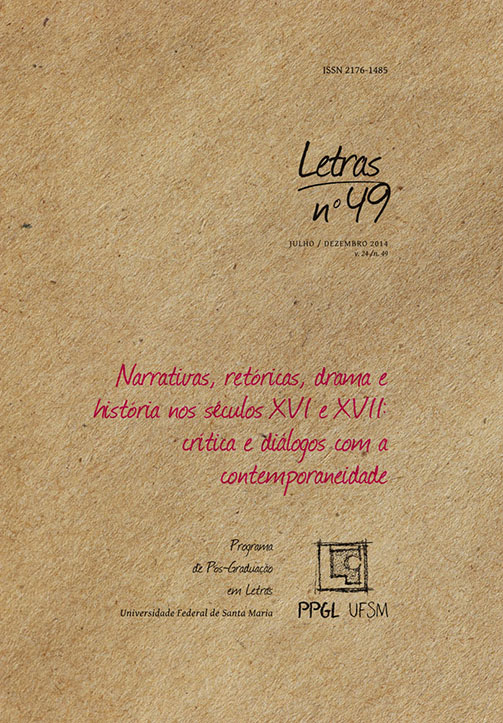Phaedra, by Jean Racine: Seventeenth-Century moral and literary creation
DOI:
https://doi.org/10.5902/2176148516597Keywords:
Phaedra. Jansenism. Grace. Free will. Tragedy.Abstract
Jean Racine’s Phèdre (1676), though inspired by dramatic models from Antiquity, reflects rather the moral and philosophical discussions crucial in the seventeenth century. It is possible to find in its pages problems that were related to the contemporary conflict between theological doctrine and literary creation. This article aims to analyze how some doctrines as those defended by the jansenists – in particular the doctrine of grace – became a breeding ground for tragedy.Downloads
Download data is not yet available.
Downloads
Published
2014-12-26
How to Cite
Carmo, M. S. M. do. (2014). Phaedra, by Jean Racine: Seventeenth-Century moral and literary creation. Letras, (49), 153–174. https://doi.org/10.5902/2176148516597
Issue
Section
Articles







